At Indigo we keep an eye on how much audiences feel that financial and economic factors are affecting their attendance. Our Indigo Share benchmark, of over 200K attenders within the last year, shows that almost ¾ of those who are attending say that it is affecting their attendance ‘a little’ or ‘a lot’.
And this hasn’t really changed in three years:
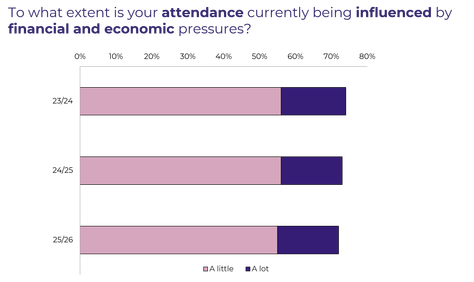
The people this is affecting the most are our first time attenders, and under 35s - two of the key groups we need to persuade to return to us quickly, so that they don’t disappear off our radar completely.
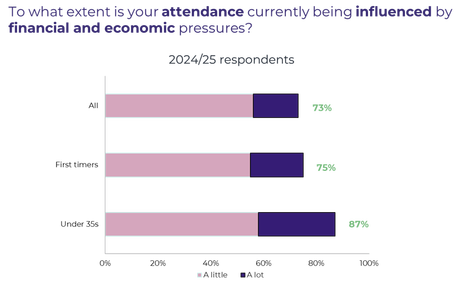
Do we have the right tools to help audiences? Three lessons from retail
There are three things I see being used ALL the time in retail and as far as I can see, we’re doing none of them.
Lesson 1: Price filters
Most of the retail sites I look at have ways of filtering by price - and on some sites in multiple ways.
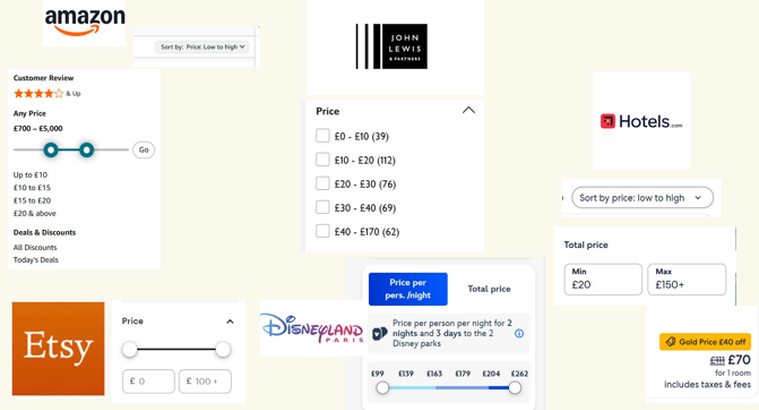
But looking at a range of cultural organisations’ website I can’t see price filters anywhere - only genre or date:
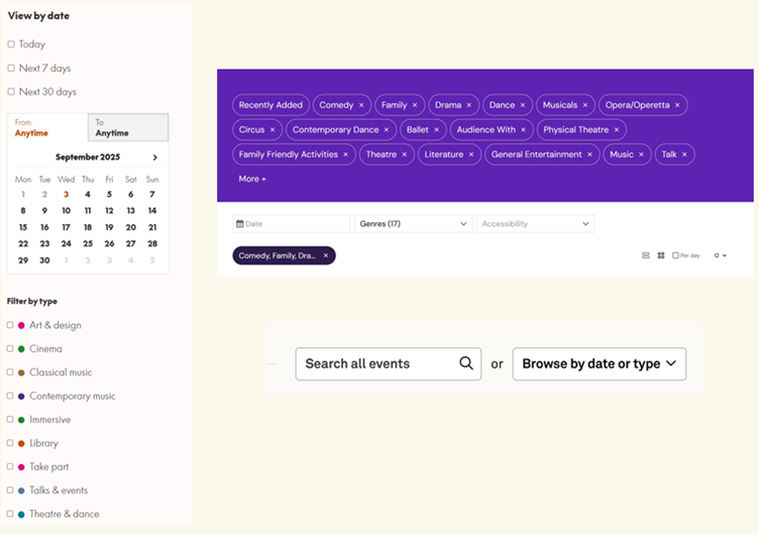
Lesson 2: Flexibility
The second thing I see in retail and particularly in travel, but not in the arts, is ticket pricing by flexibility.
Flexibility was the number one ask from our research with audiences during Covid - the ability to change their plans and not lose out financially. And so many organisations introduced flexibility during Covid. I remember one venue that offered a ‘book with confidence guarantee’ that allowed people to exchange their tickets for a credit note up to 24 hours before, and saw bookings increase by 20% as a result.
But where has this flexibility gone now? I’ve been told by most of the organisations who had that in place then, that they have now gone back to the ‘no refunds or exchanges policy’, instead hiding behind a ticket insurance scheme.
But look at it from the audience’s point of view - and their real life experiences elsewhere. You’re asking me to book for a show 12 months in advance, with no flexibility at all – and I don’t even know when my kids’ parents evenings are yet. I can’t use ticket insurance for that.
And yet travel and hotel bookings offer this all the time. Everyone knows that the only way to get a cheap train ticket these days is to book ages in advance for a specific train on a specific day and time and that if you cancel it you’re stuffed. But if you want full flexibility to change your plans at the last minute you pay A LOT more for it.
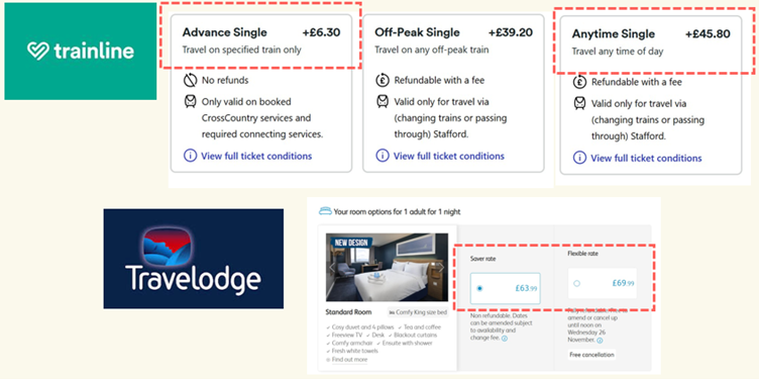
Sometimes the difference is small, but the flexibility–led pricing is still there.
But I’m not sure I’ve ever been offered this kind of flexible pricing on a theatre or concert ticket. Is this something we should be thinking about?
Lesson 3: Staged payments
And my final lesson from retail is they’re pretty much all offering the opportunity to split my payments into more affordable chunks and pay in stages.
Even if I’m buying towels from John Lewis for under £40, I’m being offered three different options for how to pay for those in instalments.
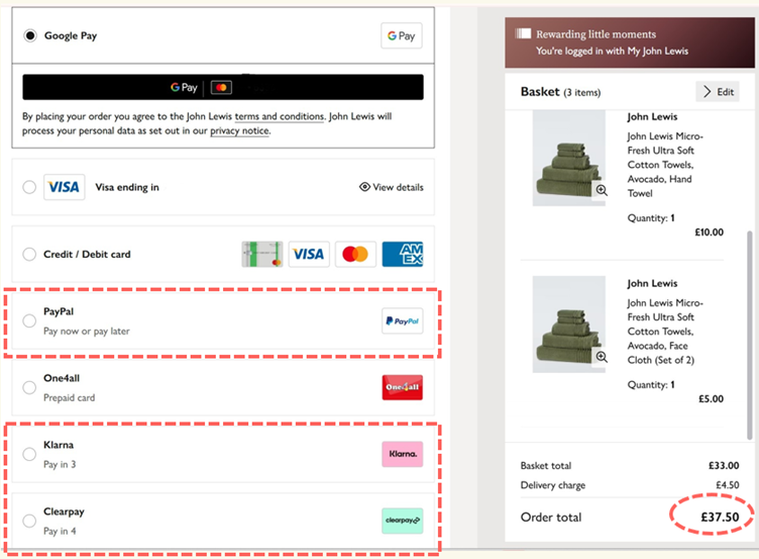
So the £40 I was going to spend on your tickets is now going on some horrid green towels, AND I get to keep some of that money for a bit longer as I’ll pay it in instalments.
How many of us are offering that? And I’m guessing our average basket value is a LOT more than £40.
Final word
I realise that we can’t do this overnight - and that the way we currently create pricing and seating plans don’t naturally support price filters or flexible pricing.
But this is the world we’re competing in for people’s spend – and just look at the choices they’re being offered.
At the moment, without these tools I think we’re asking an awful lot more of them than the retail and leisure brands we’re competing with are.